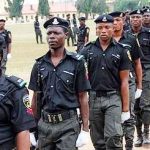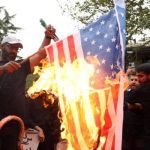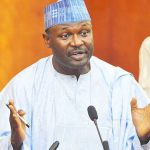Kano State Governor, Abdullahi Umar Ganduje, has cautioned politicians against making unguarded comments on security-related matters that could undermine Federal Government’s efforts at securing the nation.
He described the declaration of Zamfara a “no-fly zone” as a well thought-out security strategy by the National Security Council that will help to overcome security challenges not only in Zamfara but other neighbouring states.
Reacting to the declaration, the Governor, who spoke to journalists at the Malam Aminu Kano International Airport, Kano, noted that politicians should at least wait and see how the strategy works before making comments that are capable of undercutting the efforts of our security services to keep the country safe.
Mr. Ganduje’s comments, which were contained in a statement issued by the state commissioner for Information, Muhammad Garba, Saturday, further observed that the measure would aid in cutting suspected logistics supply and evacuation of the nation’s natural resources particularly gold.
“The issues of security should be beyond partisan considerations. I do not see anything political in declaring the no-fly zone in Zamfara state. It is purely based on security and intelligence report that there are suspicious criminal activities going on there.
The area has abundant natural resources, particularly gold and there is this suspicion the helicopters that venture into the forest and mining areas are being used to transport food and other supplies to the bandits including weaponry,” he said.
He said that what the country needed now were concerted efforts by stakeholders to combat the scourge of kidnappings, insurgency and banditry thumping the country rather than reducing it to a mere political tool.
Governor Ganduje said in view of the prevailing security challenges, particularly in the North West and North East, there is the need for a synergy between the states and the federal government to prevent the situation from getting out of control.
He also appealed for a concerted approach by the state governments, security agencies, traditional rulers, community and religious leaders, to successfully tackle security challenges in the country.














